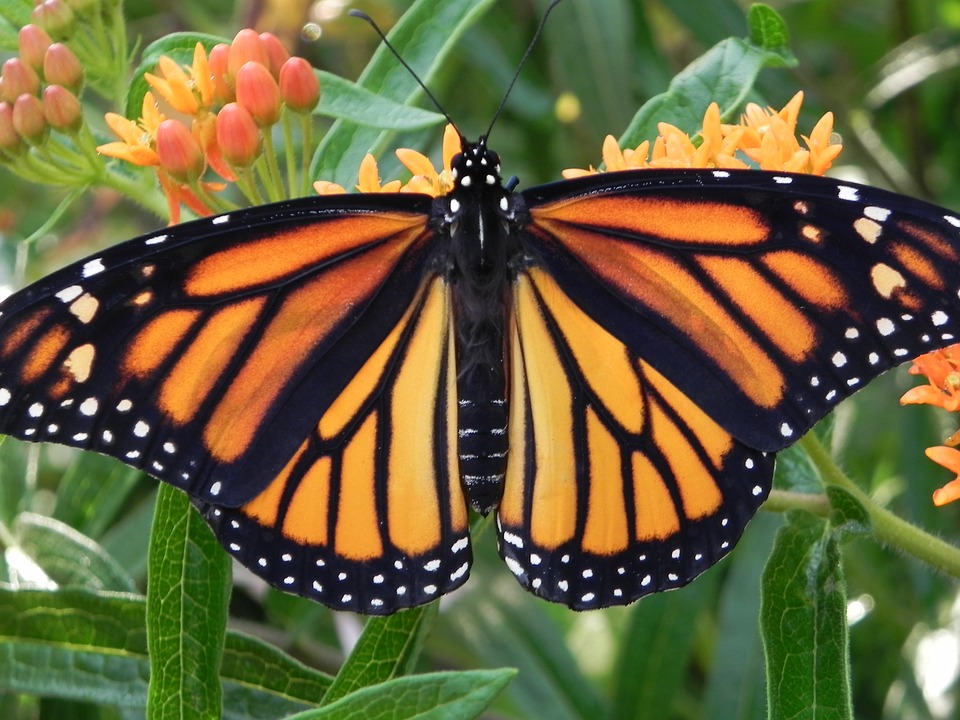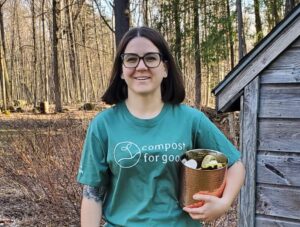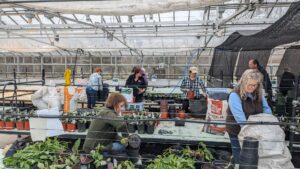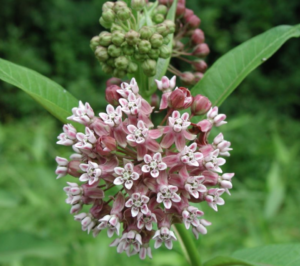
Monarch butterflies contribute more than just beauty to our planet. They serve as pollinators and contribute to the health of the environment by pollinating many types of wildflowers and serving as a food source for birds, small animals, and other insects.
Monarchs also serve as an indicator species. They rely on native milkweed and other nectar flowers that many other pollinators rely on as well. Declining monarch populations brings attention to other pollinators populations because they all rely on healthy habitats that include milkweed and other native wildflowers.
The decline in monarch populations parallels with the decline of other pollinator species which is important to note because we depend on all of these pollinators for the health of our food systems across the planet. Providing enough healthy habitat for monarchs and pollinators, in general, is crucial to the health of the entire food web and the human population as a whole. Pollinators play a key role in our food system, and without them, many of the fruit, vegetable, and nut crops that we love would not be produced.
The protection of a beautiful species such as the monarch butterfly is important in educating future generations about the importance of pollinators. The fact that these feather-light insects can travel for thousands of miles is remarkable and a journey that can be shared to help all generations understand the importance of caring for our environment.
There is no one simple answer as to why monarch populations have been decreasing over the past two decades. Monarch butterflies experience a multitude of threats to their survival including loss of milkweed plants, loss of winter habitat, and climate change. Milkweed plants are critical to the survival of monarch butterflies because they only lay their eggs on certain types of milkweed plants. Monarch caterpillars only eat milkweed and milkweed provides all the nourishment the monarch needs to transform the caterpillar into an adult butterfly. What an incredible plant!
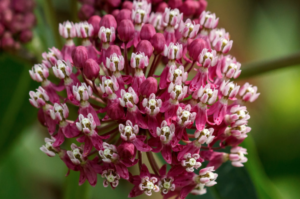
Unfortunately, there has been a huge loss of milkweed and suitable habitat for monarchs due to land development and the widespread spraying of herbicides on the fields where they live. In addition to glyphosate (the main ingredient of many herbicides), monarchs are threatened by other herbicides and neonicotinoid insecticides that are toxic to young caterpillars. Beyond the loss of milkweed plants, there has been a huge decrease in the winter habitat available for monarch populations. This loss of winter habitat is due to deforestation, harsh weather, and increased development. Because all monarchs gather in only a few locations, the overall population is at risk! Another huge threat to butterfly populations is climate change as a whole. The overall drop in temperatures, an increase in storm severity, and the increase in rainfall proves to be a battle for monarch populations. This combination of wetness and cooler temperatures has resulted in the death of hundreds of millions of butterflies and has made much of their overwintering habitats unsuitable.
In January 2019, the yearly count of monarch butterflies overwintering in Mexico was released. The report showed an increase of 144 percent from last year’s count and is reported as the highest since 2006. Although that is good news for the species, there is still work to be done in order to protect monarch butterflies. This past winter, it was recorded that 6.05 hectares of oyamel forest in Mexico made up the habitat for the monarchs compared to 2.48 hectares from the winter of 2018. Favorable weather during the spring and summer breeding seasons and during the fall migration is a significant factor for this overall increase. It is important to remember that one season with an increase in monarch populations may not be enough to save the species entirely and work is still needed to protect this migratory wonder. As recently as the mid-1990s, monarchs covered almost 21 hectares of forest in their wintering ground, comparing to a very slim 1 hectare in 2014. We have certainly made progress in the right direction and the good work will continue. This is where AdkAction and our pollinator project comes in. We are working to increase the number of pollinator-friendly habitats throughout the Adirondacks and educate people on why planting these pollinator-friendly plant species is incredibly important. With the use of our pollinator trailer, we have been able to plant gardens all across the park that provide healthy habitats for pollinators. Since the start of our pollinator project, we have distributed over 50,000 free seed packets including native milkweed and wildflowers to help people all across the northeast increase the amount of milkweed and other pollinator species available to monarchs.
Learn more about our pollinator project.


